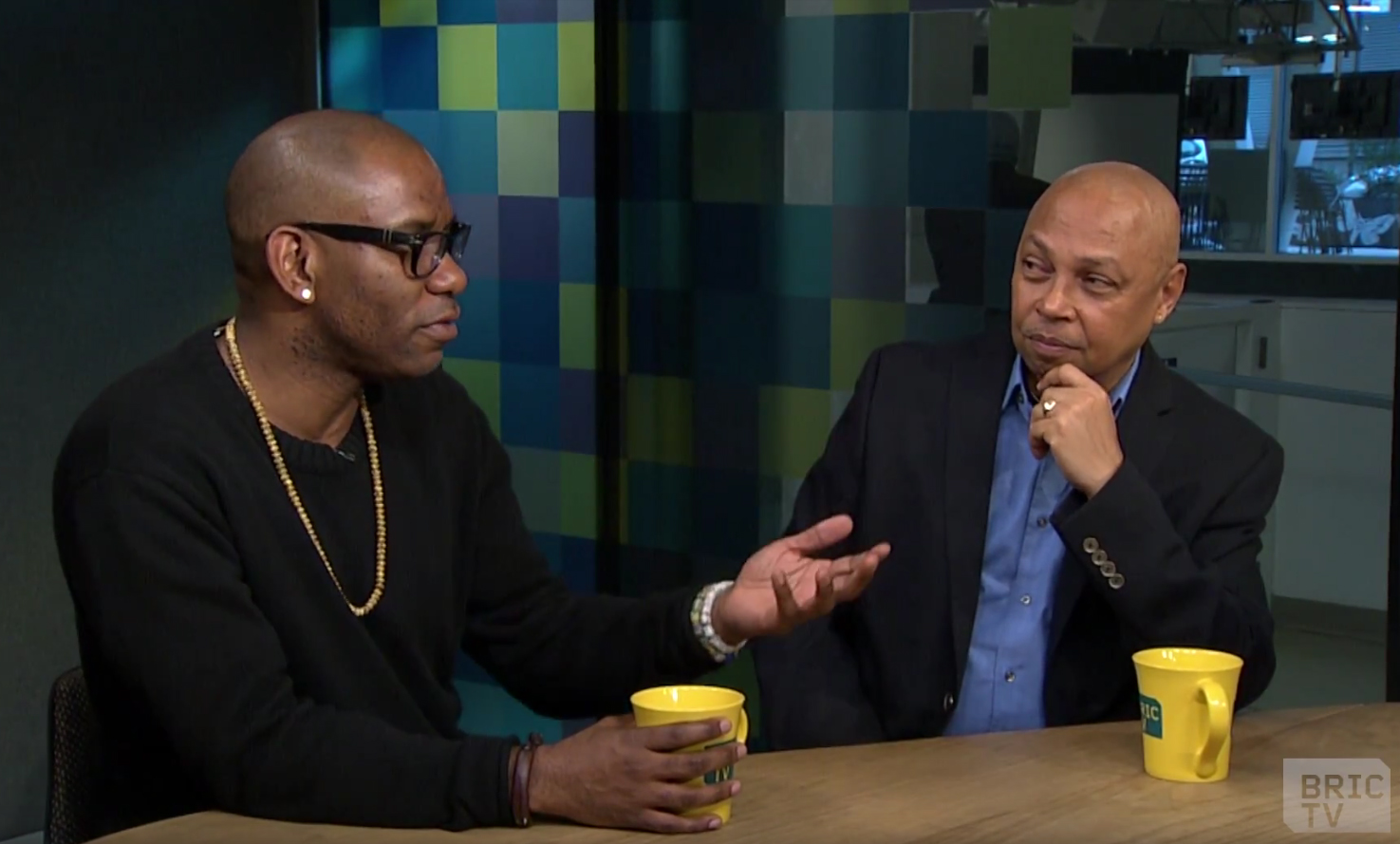“We have to figure out a new way of engaging in the family album, and for me it’s a tool to bring people together and to see our humanity, to see our specialness, and to see each other.” – On my new project, Family Pictures USA, in conversation with Ashley C. Ford.
For its opening program of 2018, BRIC TV aired “Mental Health & the PoC LGBTQ Community, ‘An Adam Experiment’, and ‘Family Pictures USA'”, 3 conversations hosted by Ashley C. Ford of 112BK that explored strategies for survival and self-determination through community action.

On set with Ashley C. Ford at 112BK in Brooklyn, NY
I had the pleasure of speaking with Ashley about my work on Family Pictures and the importance of public media and the archive in expanding notions of family. It was good to be back 2 years after my last interview with BRIC TV—that time for Through A Lens Darkly—to reflect on how my work has evolved over 30 years of using public television, art, and film to examine issues of healthcare, representation, and substantive rights among LGBTQ+ and diasporic communities.
Featured in the program are two leaders working in the intersections of mental health, race, sexuality, and gender identity: Kenyon Farrow, U.S. and Global Health Policy Director at Treatment Action Group, and Antoine B. Craigwell, President & CEO of DBGM, who both had sharp insights about how to increase mental health support within PoC LGBTQ communities.
As Antoine says in their conversation, “There is still stigma surrounding mental health, there is still stigma surrounding sexual orientation, there is still stigma surrounding HIV. And POC communities are still being affected by all three.”
Kenyon adds, “The critical thing we need is to fight for comprehensive health care in this country, which includes mental health treatment.”
These necessary and monumental struggles, and many others facing us, will require expanded family and community structures to sustain them. “One of the great things that we have in our community and I think that we should use more is: people within LGBT communities, particularly folks of color, build what we call chosen family structures,” Kenyon said during the segment.

Kenyon Farrow and Antoine B. Craigwell on Mental Health and the PoC LGBTQ Community
The validity of chosen families, the community that processes joy and grief together, the people with whom we share vulnerabilities and think creatively – that is what I want to highlight in my work about family and the archive. I want to ask: What are the narratives hidden in the archive that should be remembered, mourned, and celebrated? What will reflect back at us when we approach our archives with new resources and our fiercest imaginations? What can we build together?
Sometimes building comes in the form of creatively reinterpreting legacies, as writer, actor, director, and producer Michael Chenevert shares in the second segment of the program. Coincidentally, Michael is another great talent hailing from Detroit, MI—the featured city of Family Pictures USA’s pilot series! His one man show “An Adam Experiment” explores a day in the life of Adam Clayton Powell, Jr., the first African American elected through New York to Congress.
In listening to him speak about the inspiration behind his show and the importance of having self-validating role models, I was pulled back to 2013—a lifetime ago it seems—to a roadshow I organized at The Schomburg Center for Research in Black Culture, where a member of our audience shared her experience meeting the pastor-politician as a young girl: “I loved Adam Clayton Powell because he told me I was beautiful… When he told me I was beautiful, I believed it for the rest of my life.”
These messages of self-recognition and self-love are vital, amidst the weight of the work we must do, in carrying us forward. As Antoine says, “When you look in the mirror… who do you see looking back at you? How often have you stood butt-naked in front of a mirror and looked at yourself, turned around, and accepted every single part of you? So that is self-acceptance. And that is the beginning of also encouraging others to accept you for who you are.”
Participating in this BRIC TV program was such a critical reminder that our stories are all interconnected in ways that may not be historicized but are deeply felt. It reminded me of the power of public media to highlight our synchronicities and amplify the work individuals and communities are doing every day—a power I’ve already witnessed through my work with Family Pictures USA.
At a time when so much seems to be falling apart, public media can provide new spaces for creativity and healing. Watch the full program “Mental Health & the PoC LGBTQ Community, ‘An Adam Experiment’, and ‘Family Pictures USA'” on BRIC TV’s Youtube channel, and join us in thinking about what we can build in 2018 and beyond.
Related reading: Thomas Allen Harris looks back at 28 years of HIV/AIDS activism in newly released short film, “About Face: The Evolution of a Black Producer”
No comments yet.